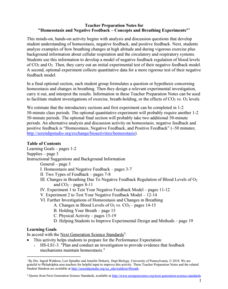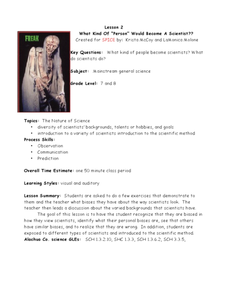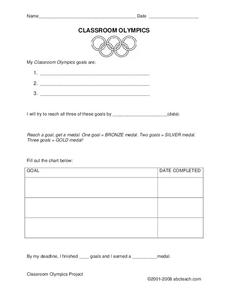Nuffield Foundation
Investigating Anti-Microbial Action
Join the fight against bacteria. An open investigation shows pupils different aspects of antimicrobial substances, such as disinfectants, deodorants, or plant oils. They design and conduct their own experiments on the effectiveness of...
Nuffield Foundation
Making a Streak Plate
Cultivate bacteria with a straightforward lesson featuring agar. Scholars create a streak plate on agar to ideally create colonies of bacteria or yeast that are growing separately from each other. The resource introduces the simplest...
Nuffield Foundation
How Good is Your Toilet Paper?
You'll never forget the importance of toilet paper and hand washing ever again. Scholars perform an experiment to model the transfer of microbes in the bathroom. They perform three trials to test the transmission of yeast using their...
Nuffield Foundation
Nitrogen-Fixing Bacteria in Root Nodules of Leguminous Plants
Fixin' to add a great resource to your plans? Scholars perform an experiment to investigate nitrogen-fixing bacteria from plant roots. Along the way, they learn about the concepts of symbiosis and mutualism.
US Department of Energy
Electric Avenue: Parallel and Series Circuits
Can you infer the wiring diagram of a series of lights based on their behavior alone? Scholars work with multiple boxes of four lights. They must flip the switch and decide how the lights are wired. By applying their knowledge of...
Howard Hughes Medical Institute
Explore Your Inner Animals
Human bodies prove evolution thanks to our genes, bones, and more. Learning about specific body parts and how they evolved from other species helps individuals better understand the transition species that helped us become who we are today.
Serendip
Food, the Carbon Cycle and Global Warming
As the world population increases, demands on the carbon cycle also increase. A well-designed lesson plan first explores the greenhouse effect and its impact on global warming. Further sections have pupils study the effect of greenhouse...
Serendip
Understanding and Predicting Changes in Population Size – Exponential and Logistic Population Growth Models vs. Complex Reality
Salmonella poisoning impacts over 200,000 people in the United States each year. Scholars learn about the growth of these bacteria using multiple approaches. Then they apply the same growth calculations to endangered species and think...
Serendip
Homeostasis and Negative Feedback – Concepts and Breathing Experiments
More asthma attacks happen at higher altitudes, but why? Scholars complete worksheets, learning about homeostasis and feedback related to breathing. Then, they work in small groups to experiment with breathing in limited amounts of...
Cold Spring Harbor Laboratory
Genes Don't Blend
Yellow and blue make green—unless you're studying the inheritance of genetic traits. An interactive lesson explains the difference between blended traits and pure traits and gives examples of their occurrence. The resource includes a...
Cold Spring Harbor Laboratory
The RNA Message Is Sometimes Edited
In 1993, Phillip Sharp and Richard Roberts won the Nobel Prize for their discovery of split gene theory. Learn about the breakthrough with the help of an online interactive. Hear both scientists explain it in their own words, watch an...
National Nanotechnology Infrastructure Network
Noodling Around: Powers of Ten
How many noodles long is your classroom? Find out when engineers of all ages explore measurement through the use of pool noodles. With the noodles pre-cut to certain metric lengths, the activities could be used to introduce the metric...
Steppenwolf Arts Exchange
Fahrenheit 451: Study Guide
Here's a must-have packet for your curriculum library. If you are interested in Fahrenheit 451, if you are interested in Ray Bradbury, if you are interested in censorship, if you interested in programs that make a difference, then this...
Curated OER
The Flower and the Fly
It's like a biological "Beauty and the Beast!" The fascinating mutualism between a South African meganosed fly and a deep-throated geranium builds a case study in coevolution for your biology buffs to analyze. After reading about this...
Curated OER
Acid (and Base) Rainbows
Students are introduced to the differences between acids and bases and how to use indicators, such as pH paper and red cabbage juice, to distinguish between them. They make predictions that can be answered through scientific...
Curated OER
What Kind of "Person" Would Become a Scientist?
"Scientist Stereotypes" could be another name for this lesson plan! Begin by drawing from middle schoolers' preconceived notions and media portrayal of scientists, and then explain that anyone can be a scientist. Even though there is an...
Curated OER
The Electric Hookup
Students determine the wattage of appliances found in the home. They identify ways to conserve energy and calculate the number of kilowatt-hours that appliances use. They also discover the costs per kilowatt-hour for the appliances.
Curated OER
The Wetlands
Complete a comparison of the wetlands found in New York and Louisiana. Using various research methods, gather data on the wetlands found in New York and Louisiana, the animals, conditions, etc. Data is used to create a brief report on...
Curated OER
temperature and the Scientific Method Lesson Plan
Sixth graders study heat, temperature, and heat transfer. Using probeware, the teacher demonstrates boiling points. Students participate in experiments and record the beginning and ending temperatures and mass of objects. After...
Curated OER
A Good Foundation
Students examine how regional geology affects bridge foundations. In this physical science lesson, students explore how bridge types are constructed for different purposes.
Curated OER
Technology Squares: Mammals
Review basic vocabulary related to mammals. This short quiz game allows students to test their skills and understanding of scientific vocabulary. This game is appropriate for grades 5-7 and covers very basic concepts.
Curated OER
Insects
Introduce your unit on insects with this six-slide PowerPoint presentation. Characteristics of an insect are briefly discussed, including two informative diagrams. Tip: After showing this presentation, ask students to share what they...
Curated OER
Animal Classifications
While short, this resource could be used as an overview of amphibians. The presentation lists the characteristics of amphibians and provides several examples. For use in a classroom, a teacher could add information.
abcteach
Classroom Olympics
Inspire your learners to meet their goals. On these pages, pupils note down goals for math, sportsmanship, reading, spelling, science, and social studies as well as general classroom goals. Each subject has its page. Individuals earn...
Other popular searches
- B Ed General Science
- General Science Acceleration
- General Science Quizzes
- General Science Review
- General Science Sound
- General Science Energy
- General Science Test
- Guided Notes General Science
- Apologia General Science
- General Science Knowledge

























